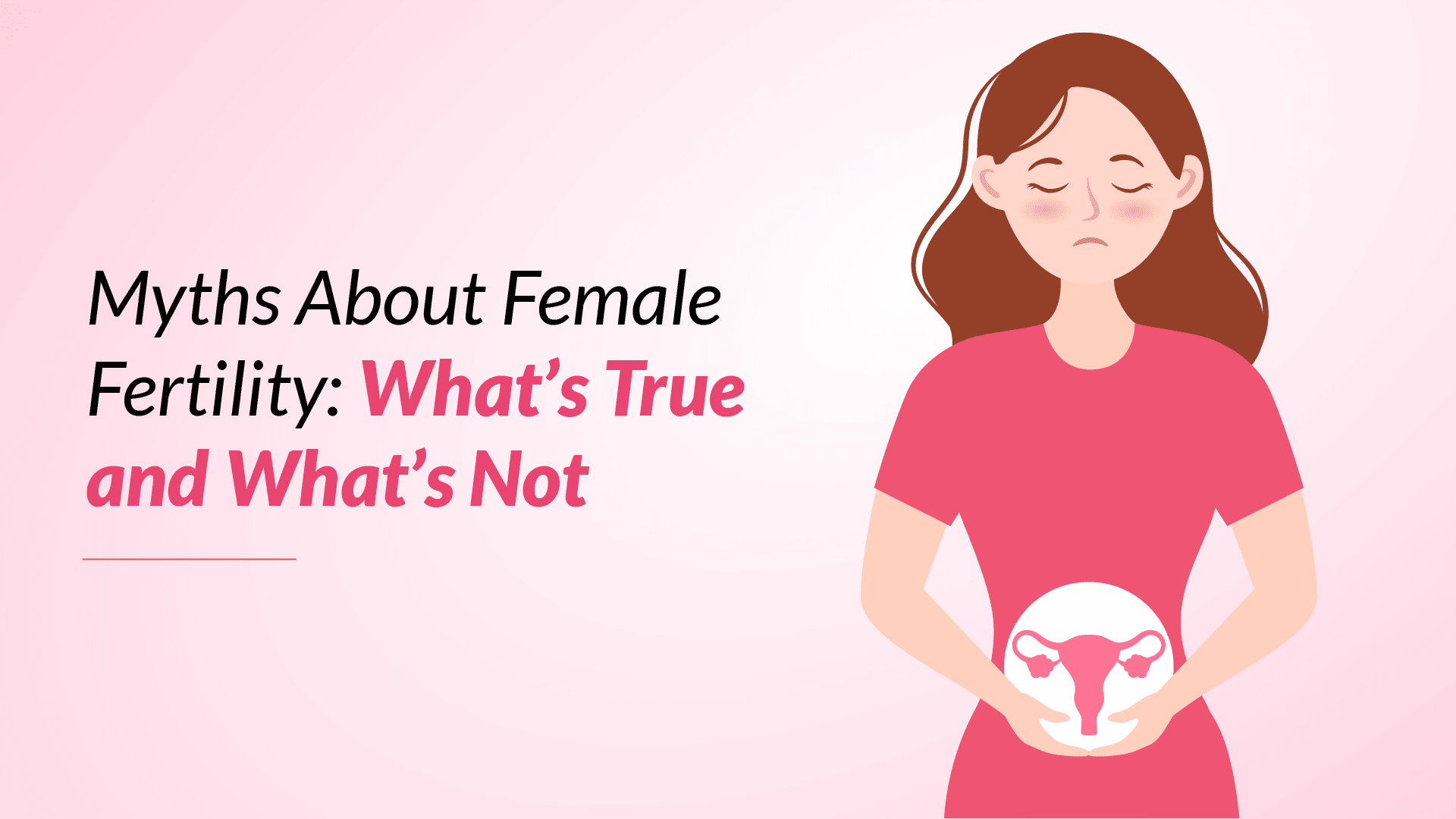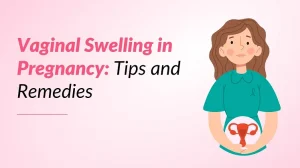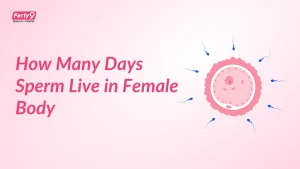Have you ever wondered how much of what you hear about getting pregnant is actually true? When it comes to female fertility, there’s a lot of information circulating, but unfortunately, not all of it is accurate. Misunderstandings around this topic can create unnecessary stress and confusion, making it hard for women to choose the right for their health and future.
According to recent data, one in six couples globally experiences some form of infertility. Despite these numbers, infertility myths and common misconceptions about pregnancy continue to be widespread, sometimes making the journey to parenthood even more challenging. But, with proper understanding and the right guidance, you can separate facts from fiction to make healthy choices.
Related read: Signs and Symptoms of Female Infertility
Common Myths About Female Fertility
Let’s understand the pregnancy myths and facts that surround female fertility.
Myth 1: You Can Get Pregnant During Your Period
One of the most common pregnancy myths about getting pregnant is that conception is impossible during menstruation. While it’s less likely to get pregnant during this time, it’s still possible. Sperm can live inside the body for up to five days, and if you have a shorter cycle, ovulation could occur soon after your period ends. So, if you’re trying to avoid pregnancy, relying solely on your period is not a foolproof method.
Myth 2: Age Doesn’t Affect Fertility
Among fertility myths, the belief that age doesn’t impact fertility is the most misleading one. As women age, especially after the age of 35, fertility rates begin to decline. This is due to a reduction in both the quality and quantity of eggs. Age is a crucial factor in female fertility, and it’s essential to consider it when planning for a family.
Myth 3: If You’re Not Trying, You Can’t Get Pregnant
A common myth about getting pregnant is that conception only happens when you’re actively trying. The truth is that pregnancy can happen even without any deliberate attempts, as long as there’s unprotected intercourse. Understanding your cycle and fertile window can help in planning or preventing pregnancy as per your needs.
Myth 4: Weight Doesn’t Matter for Fertility
Weight can significantly affect fertility, as obesity and being underweight can interfere with hormonal balance. This affects ovulation and overall reproductive health. Maintaining a healthy weight can be necessary for fertility, and it’s best to consult a doctor for personalized advice on weight management if you’re facing fertility issues.
Myth 5: You Can’t Get Pregnant After a Miscarriage
One of the most hurtful infertility myths is that miscarriage ends all chances of a healthy pregnancy. In reality, many women go on to have successful pregnancies after a miscarriage. Fertility often returns quickly, sometimes even in the next cycle. However, it’s essential to give your body time to heal, both physically and emotionally, and follow any specific medical advice.
Myth 6: Stress Has No Impact on Fertility
While stress alone might not be the primary cause of infertility, it can indeed impact reproductive health. High-stress levels can impact the hormonal balance, disrupting the menstrual cycle and even ovulation. Finding ways to manage stress, such as relaxation techniques or regular exercise, can be beneficial when you’re trying to conceive.
Myth 7: Drinking Alcohol in Moderation is Fine
Another common misconception about conception myths is that small amounts of alcohol have no impact. While moderate alcohol intake may not harm everyone, it’s safer to avoid it if you’re trying to conceive, as even moderate drinking can influence fertility and potentially impact early pregnancy.
Myth 8: All Birth Control Methods Are Equally Effective
When it comes to common pregnancy misconceptions, assuming all birth control methods work the same way is misleading. Different contraceptives have varying effectiveness rates. Methods, like hormonal contraceptives, are highly effective, while others, like withdrawal, have a much higher failure rate. Understanding these differences can help you make more suitable choices about family planning.
Myth 9: Infertility is Always Female-Related
A long-standing fertility myth is that infertility is solely a woman’s problem. However, male infertility contributes to about 50% of cases, with factors like sperm quality, motility, and hormonal issues impacting male fertility. Fertility struggles can stem from either partner, and seeking help together is often the best approach.
Myth 10: Fertility Treatments are Always Successful
One of the most common pregnancy myths is that modern fertility treatments guarantee success. While treatments like IVF have revolutionized fertility care, success is not assured and depends on several factors, including age and overall health. It’s important to approach fertility treatments with realistic expectations and consult a fertility expert who can provide insights into what’s likely to work for you.
Find Hope and Solutions for Infertility Problems—Explore Our Comprehensive Services
IVF Treatment
IUI Treatment
ICSI Treatment
PICSI Treatment
Fertility Preservation Service
Blastocyst Culture & Transfer Treatment
Genetic Screening & Testing
Conclusion
Understanding conception facts and myths is crucial, as it can make a significant difference in how you approach fertility and family planning. Knowing the truth behind these common myths about pregnancy can help you feel empowered and reduce unnecessary worries.
If you’re seeking professional help, consider reaching out to Ferty9 Fertility Center. With expert guidance and personalized care, Ferty9 Fertility Center can help you make informed decisions about your reproductive health and address any fertility concerns you may have.





























